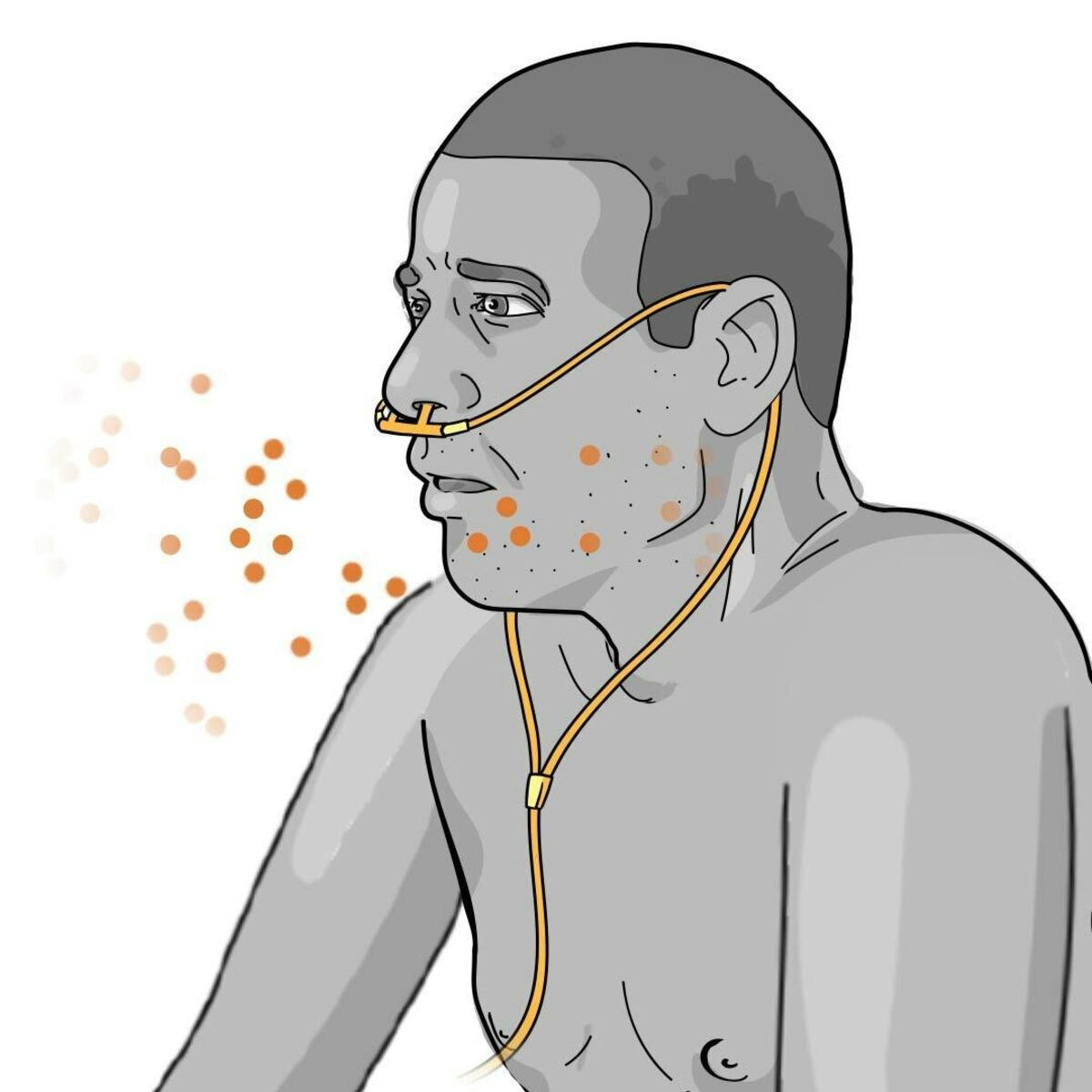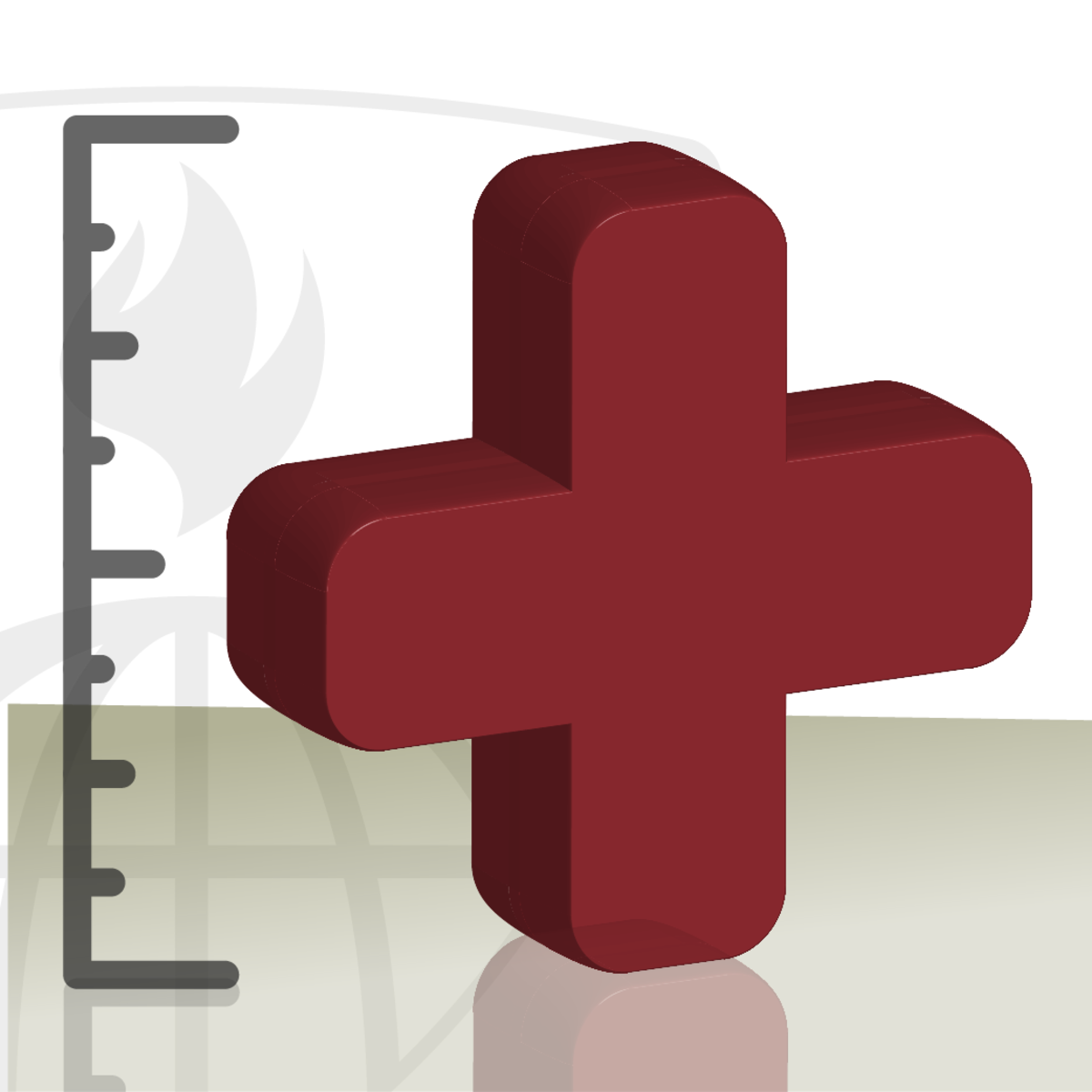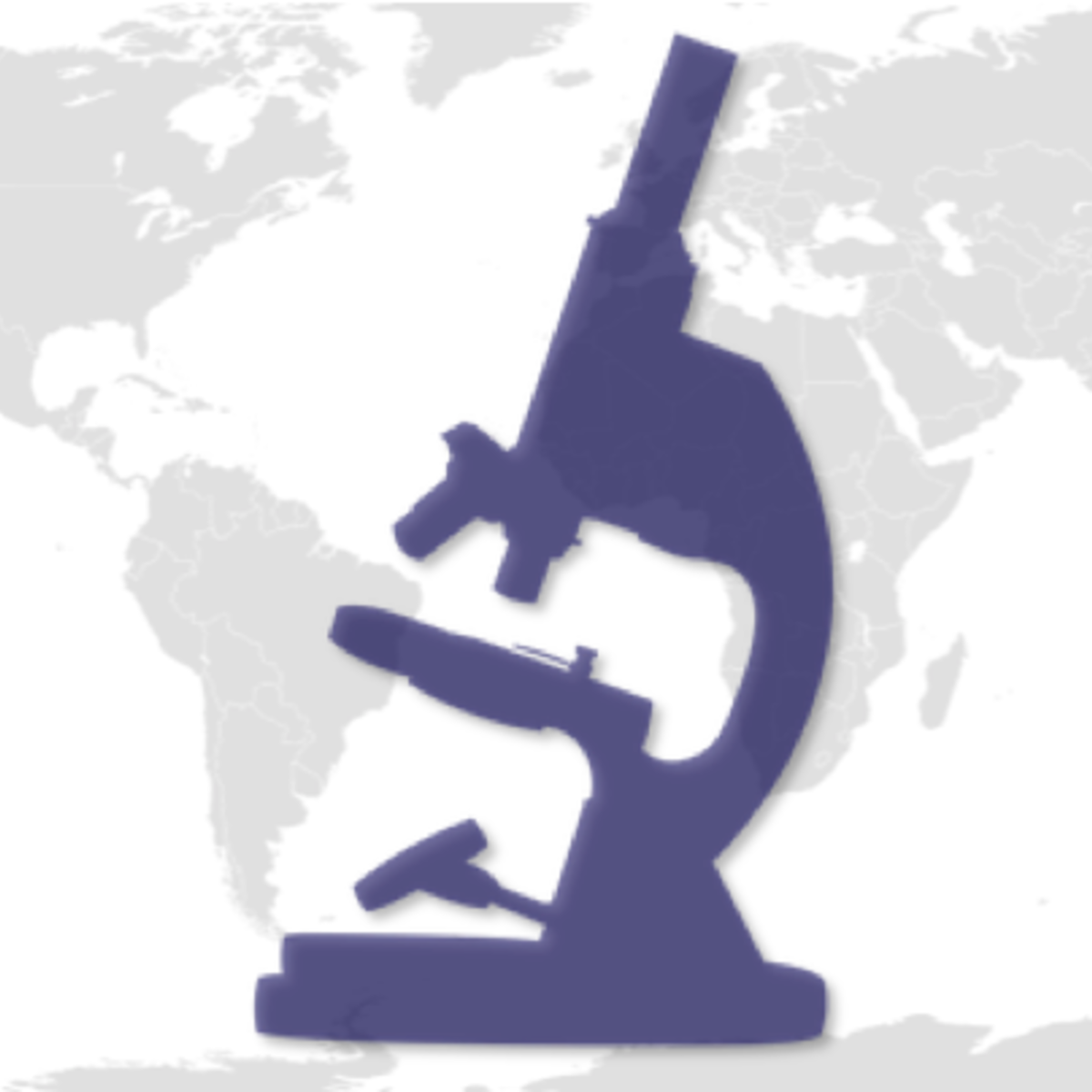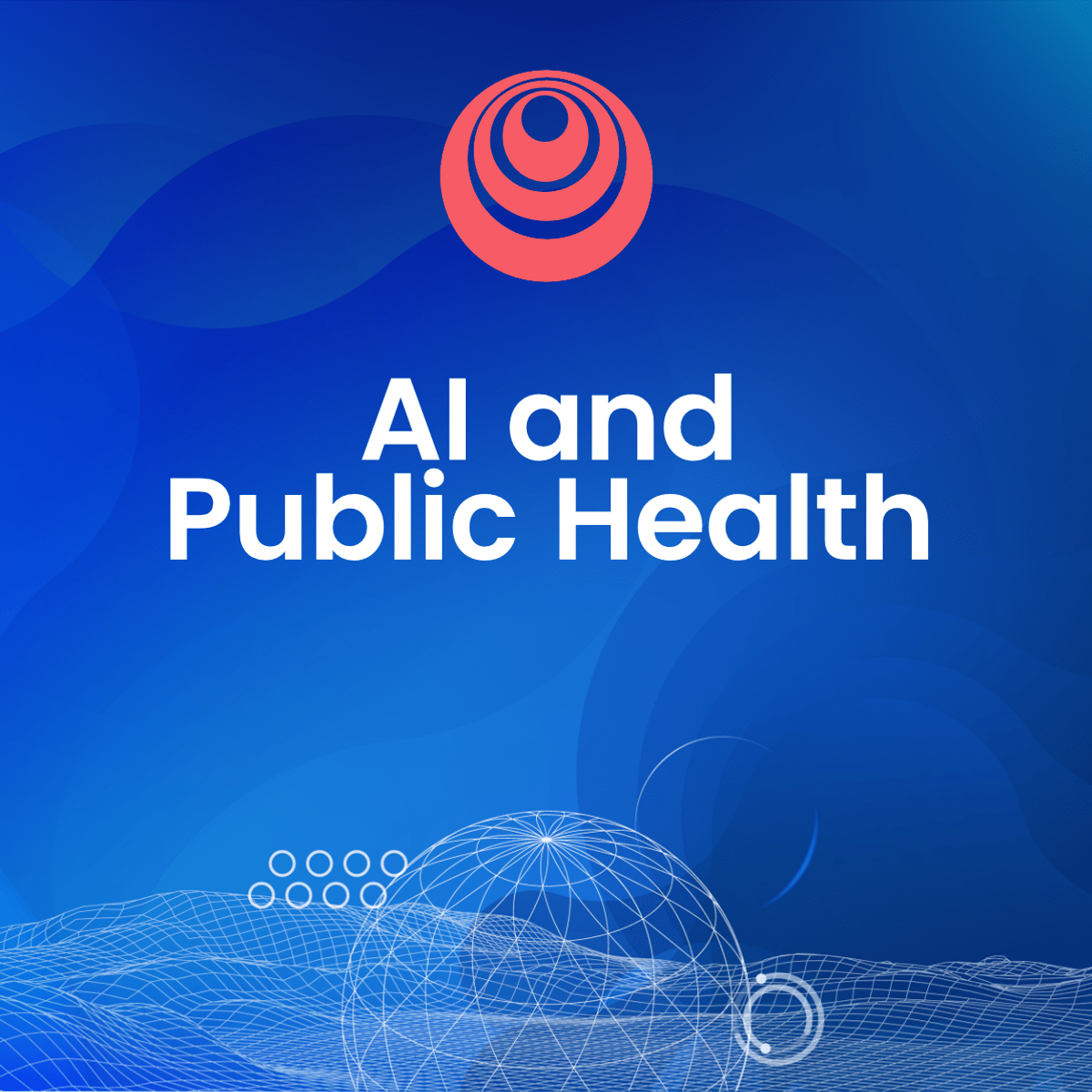Public Health Official
A Career as a Public Health Official
Public Health Officials work at the forefront of protecting and improving the health of communities. They operate at the intersection of science, policy, and community action, striving to prevent disease, prolong life, and promote health equity across populations, rather than focusing solely on individual patients. Their work spans diverse settings, from government agencies and non-profits to international organizations and research institutions.
Working in public health can be deeply rewarding. Officials often tackle complex challenges, from managing infectious disease outbreaks and addressing chronic health conditions to mitigating environmental risks and advocating for policies that support well-being. The field offers the chance to make a tangible difference in people's lives on a large scale, contributing to safer, healthier societies.
Overview of Public Health Official
This section provides a foundational look into the world of public health officials, defining their purpose and operational landscape.
Definition and Core Objectives
A Public Health Official is a professional dedicated to safeguarding and enhancing the health of entire populations. Their core objective is prevention – stopping health problems before they start or minimizing their impact when they occur. This involves understanding the broad factors that influence health, known as the social determinants of health, such as socioeconomic status, education, environment, and access to care.
They work to identify health risks within communities, develop strategies to address these risks, and implement programs to promote healthy behaviors and environments. This might involve tracking disease outbreaks, ensuring safe food and water, promoting vaccination, or advocating for policies that reduce health disparities.
Ultimately, the goal is to create conditions where everyone has the opportunity to be healthy. This requires a population-level perspective, considering the collective well-being rather than just individual treatment.
These introductory courses offer a broad overview of the field and its fundamental principles.
Key Sectors of Employment
Public Health Officials are employed across various sectors, each offering unique opportunities and challenges. Government agencies at the local, state, and federal levels (like the Centers for Disease Control and Prevention - CDC - or local health departments) are major employers. Here, officials often focus on surveillance, policy development, regulation, and emergency response.
Non-governmental organizations (NGOs) and non-profits also play a significant role. These organizations might focus on specific health issues (like HIV/AIDS or maternal health), advocate for vulnerable populations, or implement community-based health programs, both domestically and internationally.
Healthcare systems, including hospitals and clinics, employ public health professionals to manage community health initiatives, infection control programs, and population health strategies. Academia and research institutions are another key sector, where officials conduct research, educate future professionals, and contribute to the evidence base for public health interventions.
Intersection with Other Disciplines
Public health is inherently interdisciplinary, drawing knowledge and methods from various fields. Epidemiology, the study of disease patterns in populations, is a cornerstone, providing the tools to understand health threats and design interventions.
Policy and law are crucial for implementing large-scale health improvements. Public health officials often work with policymakers to develop legislation, regulations, and guidelines that protect public health, such as seatbelt laws or smoking bans.
Community health focuses on engaging directly with communities to understand their needs and empower them to improve their own health. This involves collaboration with community leaders, social workers, educators, and residents. Other intersecting fields include biostatistics, environmental health, health economics, sociology, and communications.
These resources explore some of the key intersecting disciplines.
Impact on Population Health Outcomes
The work of public health officials has a profound impact on population health outcomes. Historically, public health interventions like sanitation improvements, clean water initiatives, and vaccination campaigns have dramatically increased life expectancy and reduced infectious disease burdens.
Modern public health efforts continue this legacy by addressing contemporary challenges. Officials work to reduce rates of chronic diseases like heart disease and diabetes through prevention programs, combat epidemics like the opioid crisis, prepare for and respond to pandemics, and tackle health disparities rooted in social and economic inequality.
By focusing on prevention, policy, and community-level interventions, public health officials create healthier environments, promote healthier behaviors, and ensure more equitable access to care, ultimately leading to longer, healthier lives for entire populations.
Roles and Responsibilities
Public health officials undertake a wide range of tasks focused on protecting and improving community well-being. Their specific duties vary based on their role, employer, and area of specialization.
Disease Prevention Strategies
A core function is developing and implementing strategies to prevent the spread of disease. This includes promoting vaccination programs to prevent infectious diseases like measles and flu. Officials also design screening programs for early detection of conditions like cancer and diabetes.
They investigate outbreaks of illness, tracing sources and implementing control measures to stop further transmission. Health education campaigns aimed at modifying risk behaviors, such as smoking cessation programs or initiatives promoting safe sex practices, are also key prevention strategies.
Understanding the causes and spread of disease is fundamental to prevention. Courses like these delve into disease mechanisms and screening.
Policy Development and Implementation
Public health officials often play a critical role in shaping health policy. They analyze health data to identify problems that require policy solutions and provide evidence-based recommendations to lawmakers and government agencies.
This might involve advocating for regulations to improve air or water quality, policies to increase access to healthy foods, or laws to restrict tobacco sales. Once policies are enacted, officials are frequently involved in their implementation and evaluation, ensuring they achieve their intended health goals.
Understanding how policy impacts health is essential. This course provides insights into health policy.
These books offer deeper dives into the legal and policy aspects of public health.
Emergency Response Coordination
During public health emergencies, such as natural disasters, pandemics, or bioterrorism events, officials are central to the response effort. They coordinate resources, manage communication with the public and other agencies, and implement plans to protect health and safety.
This involves establishing emergency shelters, distributing essential supplies like food and water, setting up temporary medical facilities, and providing timely, accurate information to the public. Preparedness planning, including conducting drills and developing response protocols, is also a crucial part of this responsibility.
These courses focus specifically on navigating public health during crises.
Health Education Campaigns
Communicating health information effectively is vital. Public health officials design and run campaigns to educate the public about health risks and promote healthy behaviors. This might involve creating materials like brochures and websites, organizing community workshops, or using social media to reach target audiences.
Campaigns often focus on topics like nutrition, physical activity, injury prevention, mental health awareness, and substance abuse prevention. The goal is to empower individuals and communities with the knowledge and skills they need to make informed health decisions.
Effective communication is key to successful campaigns. These resources cover communication strategies in public health.
Data Analysis for Public Health Decisions
Data is fundamental to public health practice. Officials collect, analyze, and interpret health data to understand disease trends, identify at-risk populations, monitor the effectiveness of interventions, and allocate resources efficiently.
This involves using statistical methods and software to analyze large datasets, such as vital statistics records, disease registries, and survey results. The insights gained from data analysis inform nearly all aspects of public health work, from program planning and policy development to outbreak investigations.
Strong analytical skills are essential. These courses introduce statistical methods and data analysis relevant to public health.
Formal Education Pathways
Entering the field of public health typically requires specific educational qualifications. The path often begins with an undergraduate degree, followed by specialized graduate study.
Undergraduate Degrees
While a dedicated undergraduate degree in public health is becoming more common, many successful officials start with degrees in related fields. Biology, sociology, health sciences, nursing, environmental science, statistics, and even political science can provide a strong foundation.
Coursework in these areas introduces concepts relevant to public health, such as human physiology, social structures, environmental factors influencing health, and basic statistics. Regardless of the major, gaining foundational knowledge in science, social science, and quantitative reasoning is beneficial.
Internships or volunteer experiences in public health settings during undergraduate studies are highly valuable for gaining practical exposure and clarifying career interests. These experiences can also strengthen applications for graduate programs.
These courses cover foundational topics often found in relevant undergraduate programs.
Graduate Programs (MPH, Epidemiology)
A Master of Public Health (MPH) is often considered the standard professional degree for those serious about a career in public health leadership, policy, or practice. MPH programs provide comprehensive training across core public health disciplines: epidemiology, biostatistics, health policy and management, social and behavioral sciences, and environmental health.
Many MPH programs offer concentrations, allowing students to specialize in areas like global health, health communication, maternal and child health, or health equity. Other relevant master's degrees include a Master of Science (MS) in Epidemiology or Biostatistics, which offer more focused research training, or a Master of Health Administration (MHA) for those focused on managing healthcare organizations.
Admission to these programs typically requires a bachelor's degree and sometimes specific prerequisite courses or relevant work experience. Exploring different programs and their focus areas on platforms like OpenCourser's Health & Medicine section can help identify the best fit.
These courses are representative of graduate-level study in core public health areas.
PhD Roles in Research or Academia
For those interested in leading independent research, directing major public health programs, or teaching at the university level, a doctoral degree is often necessary. The Doctor of Philosophy (PhD) is the primary research degree, typically focused on a specific discipline like epidemiology, biostatistics, environmental health sciences, or health policy.
PhD programs involve advanced coursework, comprehensive exams, and the completion of a dissertation based on original research. These programs train individuals to become experts in their field, capable of designing studies, analyzing complex data, and contributing new knowledge.
Another option is the Doctor of Public Health (DrPH), which is often geared more towards leadership and practice in public health settings rather than pure research. Both PhD and DrPH holders work in academia, government agencies, research institutions, and high-level positions in NGOs or private industry.
Accreditation Bodies and Certifications
Accreditation ensures that educational programs meet established quality standards. In the U.S., the Council on Education for Public Health (CEPH) is the primary accrediting body for schools and programs of public health. Graduating from a CEPH-accredited program can be important for certain employment opportunities and for eligibility for certification.
While not always required for employment, professional certification can enhance credibility and demonstrate expertise. The Certified in Public Health (CPH) credential, offered by the National Board of Public Health Examiners (NBPHE), is a common certification for MPH graduates. It requires passing an exam covering core public health knowledge areas.
Other specialized certifications exist for specific roles, such as Certified Health Education Specialist (CHES) for health educators or certifications in infection control (CIC) or industrial hygiene (CIH). Requirements vary depending on the specific certification and role.
Online and Independent Learning
Beyond formal degrees, online courses and independent study offer valuable pathways for building skills and knowledge in public health, whether supplementing traditional education or facilitating a career pivot.
Core Competencies via Self-Study
Many core public health competencies can be developed or enhanced through self-directed learning. Online platforms provide access to courses covering foundational topics like epidemiology, biostatistics, health policy, environmental health, and social determinants of health.
Learners can acquire skills in data analysis using software like R or SAS, program evaluation techniques, health communication strategies, and project management. Reading key public health journals, following reputable health organizations online, and engaging with open-source materials can also deepen understanding.
This approach requires discipline but offers flexibility, allowing individuals to learn at their own pace and focus on areas most relevant to their career goals. Using tools like OpenCourser's "Save to List" feature can help organize and track learning resources effectively.
These courses cover core areas suitable for independent learning.
Microcredentials for Specialized Skills
For those seeking focused expertise in specific areas, microcredentials, certificates, or specialized online course series can be highly effective. These shorter programs often target in-demand skills like public health informatics, global health delivery, climate change and health, or health equity advocacy.
Completing such programs can demonstrate specific competencies to employers and may be particularly valuable for career changers seeking to fill skill gaps or for current professionals aiming to specialize or update their knowledge. They offer a more structured learning experience than pure self-study but are typically less time-intensive and costly than a full degree program.
OpenCourser features numerous specialized courses and certificate programs. Finding the right fit often involves searching for specific skills or topics.
These courses focus on specialized, in-demand skill areas.
Project-Based Learning
Applying knowledge through practical projects is crucial for solidifying skills. Online learning can be supplemented with self-initiated projects or simulations. For example, one might analyze publicly available health datasets to identify local health trends or disparities.
Developing a mock health education campaign for a specific community issue, drafting a policy brief on a current health topic, or participating in online simulations of outbreak investigations are other possibilities. Volunteering for local health organizations, even remotely, can provide real-world project experience.
These activities build a portfolio demonstrating practical skills, which can be invaluable during job searches. They bridge the gap between theoretical knowledge gained from courses and the practical demands of public health work.
Integration with Formal Education
Online learning can effectively complement formal degree programs. Students can use online courses to explore elective topics not offered at their institution or to deepen their understanding of core subjects.
Online resources can help prepare for specific courses or certification exams. Furthermore, skills learned online, such as proficiency in statistical software or GIS mapping, can enhance research projects or theses undertaken within a formal program.
For professionals considering a return to school, online courses can serve as a refresher or help meet prerequisite requirements for graduate programs. They offer a flexible way to test the waters before committing to a full degree.
Career Progression for Public Health Officials
A career in public health offers diverse pathways for growth, from entry-level positions to executive leadership roles across various sectors.
Entry-Level Roles
Graduates with a bachelor's degree, or sometimes an associate's degree with relevant experience, might start in roles like Health Educator, Community Health Worker, Research Assistant, or Public Health Technician. These positions often involve direct community engagement, data collection, program support, or health education delivery.
An MPH degree typically opens doors to roles with greater responsibility, such as Program Coordinator,
, or entry-level Epidemiologist. These roles often involve program planning, data analysis, report writing, and contributing to policy development.Competition for entry-level positions, especially those requiring only a bachelor's degree, can be significant. Internships, volunteer work, and strong academic performance are crucial for standing out.
Mid-Career Paths
With experience and often an advanced degree (like an MPH), public health professionals can advance to mid-career roles. These include Program Director or Manager, Policy Advisor, Senior Epidemiologist, or Health Communications Specialist.
Responsibilities at this level typically involve overseeing projects or teams, managing budgets, developing strategic plans, conducting more complex analyses, and advising senior leadership. Specialization often deepens, focusing on areas like chronic disease, infectious disease, environmental health, or health equity.
Strong leadership, communication, and analytical skills are essential for success in these roles. Networking and continuous professional development, perhaps through advanced certifications or workshops, support career advancement.
Leadership Positions
Senior leadership positions in public health require extensive experience, advanced education (often MPH, DrPH, or PhD), and demonstrated leadership capabilities. Roles include Health Commissioner or Director of a local or state health department, Chief Epidemiologist, Director of a major non-profit organization, or senior official in a federal or international agency.
These positions involve setting strategic direction, managing large budgets and staff, representing the organization publicly, liaising with government officials and stakeholders, and making high-stakes decisions affecting population health. Leadership in public health demands political acumen, ethical judgment, and the ability to navigate complex systems.
According to salary aggregation sites like ZipRecruiter, the average annual pay for a Public Health Officer in the US was around $104,686 as of early 2025, but the range is wide, spanning from roughly $59,500 to $112,000 for the middle 50%, with top earners exceeding $240,000. Salaries vary significantly based on location, experience, education, sector (public vs. private), and specific role.
Transitioning to Other Sectors
The skills and experience gained in public health are transferable to other sectors. Officials may transition into academia as professors or researchers, leveraging their practical experience to educate students and conduct research.
The private sector also offers opportunities, particularly in pharmaceutical companies, health insurance organizations, consulting firms, or corporate wellness programs. Roles might involve health economics, outcomes research, policy analysis, or program management.
Consulting, either independently or with a firm, is another path, allowing professionals to apply their expertise to diverse projects for various clients. These transitions often build upon specialized knowledge gained during a public health career.
Global Mobility Opportunities
Public health is a global field, offering numerous opportunities for international work. Major international organizations like the World Health Organization (WHO), UNICEF, and the World Bank employ public health professionals for roles in program implementation, policy development, research, and emergency response worldwide.
Many NGOs operate internationally, focusing on health issues in low- and middle-income countries. These roles often involve working directly with local communities and health systems, requiring cultural adaptability and sometimes language skills.
Expatriate assignments or short-term consultancies provide avenues for experienced professionals to contribute their expertise globally. These opportunities often focus on areas like infectious disease control, maternal and child health, health systems strengthening, and humanitarian aid.
This course provides perspective on global public health issues.
This book is a foundational text in the area.
Challenges and Risks
While rewarding, a career as a public health official is not without its difficulties. Understanding these challenges is important for prospective and current professionals.
Budget Constraints and Funding Cycles
Public health initiatives often rely heavily on government funding or grants, which can be unpredictable and subject to political cycles. Budget cuts or shifting funding priorities can jeopardize essential programs and limit the ability to address emerging health threats.
Officials may spend significant time seeking grants, managing tight budgets, and advocating for sustained funding. This financial uncertainty can create stress and hinder long-term planning and program stability. Competition for limited resources can also be intense.
Many public health systems report being historically under-funded and under-resourced, impacting workforce capacity and the ability to respond effectively to crises.
Political Pressures in Policymaking
Public health work is inherently linked to politics and policy. Officials often operate in politically charged environments where decisions based on scientific evidence may face opposition due to economic concerns, ideological differences, or special interests.
Advocating for policies that protect public health, such as regulations on industry or mandates for certain behaviors, can lead to significant pushback. Navigating these political waters requires diplomacy, strong communication skills, and resilience.
Recent years have seen increased challenges to public health authority in some regions, with legislation proposed or passed to limit the ability of health departments to implement measures like mask mandates or business closures during emergencies. This erosion of authority can undermine effective public health action.
These books delve into the legal and policy context, which often intersects with political pressures.
Burnout from Crisis Management
Responding to public health crises, such as pandemics or natural disasters, can be incredibly demanding and stressful. Officials often work long hours under intense pressure, dealing with complex logistics, public anxiety, and sometimes tragic outcomes.
The constant exposure to crises and the weight of responsibility can lead to burnout, compassion fatigue, and mental health challenges. Maintaining work-life balance and accessing support systems is crucial, yet can be difficult during prolonged emergencies.
Surveys have indicated high rates of burnout, stress, and harassment among public health workers, particularly in the wake of major events like the COVID-19 pandemic, highlighting the need for better support systems within the field.
Ethical Dilemmas in Resource Allocation
Public health officials frequently face difficult ethical choices, particularly when resources are scarce. Decisions about how to allocate limited funding, vaccines, treatments, or personnel often involve balancing competing needs and values.
Prioritizing certain populations or interventions over others can raise questions of fairness and equity. For example, deciding who receives a limited supply of vaccines first during an outbreak, or how to distribute prevention resources among different communities, requires careful ethical deliberation.
Balancing individual liberties with the need to protect collective health (e.g., implementing quarantines) also presents ongoing ethical challenges. Officials must navigate these dilemmas thoughtfully, often guided by ethical frameworks and principles specific to public health.
Ethical Considerations in Public Health
Ethics are fundamental to public health practice, guiding decisions and actions that affect the well-being of entire populations. Navigating these considerations requires careful thought and commitment to core principles.
Equity in Health Interventions
A central ethical principle is health equity – the concept that everyone should have a fair and just opportunity to attain their full health potential. Public health officials have an ethical obligation to identify and address health disparities, which are preventable differences in health outcomes experienced by socially disadvantaged groups.
This involves designing interventions that specifically reach underserved populations, advocating for policies that reduce systemic barriers to health (like poverty or discrimination), and ensuring that resources are distributed fairly. Ignoring equity considerations can perpetuate or even worsen health injustices.
Understanding and addressing the social determinants of health is key to promoting equity.
This book specifically addresses the intersection of ethics and social determinants.
Privacy in Health Data Usage
Public health relies heavily on collecting and analyzing health data from individuals to monitor disease trends, conduct research, and target interventions. However, this practice raises significant privacy concerns. Officials have an ethical duty to protect the confidentiality of personal health information.
This involves implementing robust data security measures, anonymizing data whenever possible, and ensuring that data is used only for legitimate public health purposes. Transparency about how data is collected and used is also important for maintaining public trust.
Striking the right balance between using data for the public good and protecting individual privacy is a constant challenge, governed by laws like HIPAA in the U.S. and ethical guidelines.
Balancing Individual vs. Community Rights
Public health actions sometimes require limiting individual liberties to protect the health of the community. Examples include mandatory vaccination laws, quarantine orders during outbreaks, or regulations restricting certain behaviors like smoking in public places.
These interventions can clash with principles of individual autonomy and freedom. Public health ethics requires that such measures are undertaken only when necessary, based on strong scientific evidence, implemented in the least restrictive way possible, and applied fairly.
Officials must carefully weigh the potential benefits to community health against the infringement on individual rights, ensuring transparency and due process. This balancing act is often controversial and requires clear justification.
Cultural Competency in Global Settings
When working in diverse communities, either domestically or globally, cultural competency is an ethical imperative. Public health interventions must be sensitive to and respectful of the cultural beliefs, values, and practices of the populations they serve.
Failing to consider cultural context can lead to ineffective programs, mistrust, and unintended negative consequences. This requires engaging with community members, understanding local perspectives on health and illness, and adapting strategies accordingly.
In global health settings, this includes navigating different ethical norms, power dynamics, and ensuring that interventions are collaborative and empower local communities rather than imposing external agendas.
Emerging Trends and Technologies
The field of public health is constantly evolving, driven by new scientific discoveries, technological advancements, and changing societal challenges. Staying abreast of these trends is vital for effective practice.
AI in Disease Prediction Modeling
Artificial intelligence (AI) and machine learning are increasingly being used to analyze vast amounts of health data, identify patterns, and predict disease outbreaks or trends with greater speed and accuracy. AI can help model the spread of infectious diseases, identify populations at high risk for chronic conditions, or predict environmental health threats.
While offering powerful tools, the use of AI also raises ethical considerations regarding data privacy, algorithmic bias, and the need for transparency. Public health professionals will increasingly need skills in data science and an understanding of AI applications and limitations.
These courses explore the intersection of AI and health.
Climate Change and Health Preparedness
Climate change poses significant threats to public health, including increased risks from heatwaves, extreme weather events, changing patterns of infectious diseases (like those spread by mosquitoes), and air pollution. Public health officials are increasingly focused on building resilience to these impacts.
This involves developing climate adaptation plans, strengthening surveillance systems for climate-sensitive diseases, promoting sustainable practices, and advocating for policies to mitigate climate change. Understanding the links between environmental changes and health outcomes is becoming a critical competency.
Courses focusing on environmental health and climate change are becoming essential.
Telehealth Integration
Telehealth, the delivery of health services remotely using technology, expanded rapidly during the COVID-19 pandemic and continues to be integrated into public health practice. It can improve access to care, particularly for rural or underserved populations, and facilitate remote monitoring, health education, and mental health support.
Public health officials are exploring ways to leverage telehealth for disease surveillance, delivering prevention programs, and connecting individuals with necessary services. Challenges include ensuring equitable access to technology, maintaining data privacy, and adapting workflows.
The expansion of telehealth is a significant trend noted by sources like McKinsey & Company, indicating its growing importance in healthcare delivery models.
Global Vaccine Equity Initiatives
The COVID-19 pandemic highlighted stark inequities in global access to vaccines and other essential health tools. Addressing these disparities is a major focus of current public health efforts. Initiatives aim to ensure fairer distribution of vaccines, diagnostics, and treatments worldwide, particularly in low-resource settings.
This involves strengthening global manufacturing capacity, improving supply chains, addressing vaccine hesitancy through community engagement, and advocating for international cooperation and funding mechanisms. Achieving vaccine equity is not only an ethical imperative but also crucial for global health security, as infectious diseases know no borders.
This book touches upon vaccine hesitancy, a related challenge.
Global Opportunities and Mobility
The interconnected nature of health means that public health challenges and solutions often transcend national borders, creating opportunities for professionals to work internationally.
WHO and UN Roles
Major international organizations like the World Health Organization (WHO), a specialized agency of the United Nations (UN), are significant employers of public health professionals. These organizations work on a global scale to set health standards, coordinate international health responses, provide technical assistance to countries, and conduct research.
Roles within these agencies often involve policy development, program management, epidemiological surveillance, research, and diplomacy. Positions can be based at headquarters (e.g., Geneva for WHO) or in regional or country offices around the world. Competition for these roles is typically high, often requiring advanced degrees and significant experience.
Understanding the structure and function of these organizations is key for aspiring global health professionals.
Expatriate Assignments in Low-Resource Settings
Many non-governmental organizations (NGOs) and government aid agencies offer opportunities for public health professionals to work directly in low- and middle-income countries. These assignments often focus on specific health issues like HIV/AIDS, tuberculosis, malaria, maternal and child health, or nutrition.
Work may involve implementing health programs, training local health workers, strengthening health systems, or responding to humanitarian emergencies. These roles can be challenging, requiring adaptability, resilience, and cross-cultural skills, but offer profound opportunities to make a direct impact.
These courses touch upon health issues prevalent in humanitarian contexts.
Cross-Border Health Regulations
Globalization increases the movement of people and goods across borders, which also facilitates the spread of infectious diseases. Public health professionals work on developing and implementing regulations and agreements to manage cross-border health risks.
This includes initiatives like the International Health Regulations (IHR), which provide a framework for countries to coordinate on surveillance and response to public health events of international concern. Roles in this area might involve working for national public health agencies, border health authorities, or international organizations focused on health security.
Knowledge of international law, diplomacy, and disease surveillance systems is often required for these positions.
Language and Cultural Adaptation Strategies
Success in global public health roles hinges on effective communication and cultural understanding. Proficiency in languages other than English, particularly languages widely spoken in regions of interest (e.g., French, Spanish, Arabic), can be a significant asset.
Developing cultural competence – the ability to interact effectively with people from different cultural backgrounds – is essential. This involves learning about different cultural norms related to health, communication styles, and social structures, and approaching work with humility and respect.
Training in cross-cultural communication and spending time living or working in diverse settings can help develop these crucial skills. Flexibility and adaptability are key personal attributes for navigating the complexities of global health work.
Frequently Asked Questions
Here are answers to some common questions about pursuing a career as a public health official.
Is a medical degree required?
No, a medical degree (MD or DO) is generally not required to become a public health official. While some public health leaders are physicians who later pursued public health training (often an MPH), the vast majority of roles in the field do not require a medical license.
The standard professional degree is the Master of Public Health (MPH). Many successful officials hold MPH degrees or other relevant master's or doctoral degrees in fields like epidemiology, biostatistics, health administration, or environmental health.
Physicians interested in public health often find their clinical background valuable, but the focus shifts from individual patient care to population-level health strategies, policy, and prevention.
How competitive are entry-level roles?
Competition can vary depending on the specific role, location, and required qualifications. Entry-level positions requiring only a bachelor's degree, such as health educator or community health worker, may attract a larger pool of applicants.
Roles requiring an MPH, like analyst or program coordinator positions, can also be competitive, particularly in desirable locations or prestigious organizations. Internships, volunteer experience, strong academic performance, networking, and relevant skills (like data analysis) can significantly improve competitiveness.
The overall job outlook for many public health occupations appears positive. For example, the U.S. Bureau of Labor Statistics projects faster-than-average growth for roles like health education specialists and epidemiologists through 2033, suggesting increasing opportunities.
Can I transition from clinical practice?
Yes, transitioning from clinical practice (e.g., as a nurse, physician, dentist, pharmacist) into public health is a common and often successful career path. Clinical experience provides valuable insights into health conditions, patient perspectives, and the healthcare system.
Many clinicians pursue an MPH degree to gain foundational knowledge in public health principles, epidemiology, biostatistics, and policy. This formal training helps bridge the gap between individual patient care and population health approaches.
Skills developed in clinical practice, such as communication, problem-solving, and attention to detail, are highly transferable. Networking with public health professionals and highlighting relevant skills can facilitate the transition.
Impact of automation on the field?
Automation and technology, particularly AI and data analytics tools, are likely to change, rather than eliminate, roles in public health. Routine tasks involving data entry or basic analysis might become more automated, freeing up professionals to focus on higher-level interpretation, strategy, and community engagement.
Demand is expected to grow for professionals skilled in public health informatics, data science, and using technology for surveillance, program delivery (like telehealth), and communication. Adaptability and a willingness to learn new technological tools will be increasingly important.
While some tasks may change, the core functions of public health – requiring critical thinking, ethical judgment, policy understanding, and community interaction – are less susceptible to full automation. Data from sources like the U.S. Bureau of Labor Statistics indicates growth in data-focused roles like epidemiologists and biostatisticians.
Salary expectations by region?
Salaries for public health officials vary considerably based on geographic location, cost of living, employer (government, non-profit, private), years of experience, education level, and specific role. Generally, salaries tend to be higher in major metropolitan areas and regions with higher costs of living.
For example, ZipRecruiter data from early 2025 showed significant variation in average Public Health Officer salaries across different US cities and states. While the national average was cited around $104,686, specific state averages could be higher or lower, and major cities often command higher salaries than rural areas.
Researching salary data specific to target locations and roles using resources like the BLS Occupational Outlook Handbook, salary comparison websites, and professional association surveys provides the most accurate expectations.
Networking strategies for newcomers?
Networking is crucial for entering and advancing in the public health field. Joining professional organizations like the American Public Health Association (APHA) or state/local public health associations provides access to conferences, workshops, job boards, and mentorship opportunities.
Attending public health events, seminars, and webinars (both online and in-person) allows you to meet professionals and learn about current issues. Informational interviews with people working in roles or organizations of interest can provide valuable insights and connections.
Leveraging university alumni networks and platforms like LinkedIn to connect with professionals in the field is also effective. Volunteering or interning with public health organizations not only provides experience but also expands your professional network organically.
Helpful Resources
For further exploration, consider these resources:
- American Public Health Association (APHA): The largest professional organization for public health professionals in the US.
- Centers for Disease Control and Prevention (CDC): The leading US federal agency for public health.
- World Health Organization (WHO): The primary international body coordinating global health efforts.
- Council on Education for Public Health (CEPH): Accredits public health schools and programs in the US.
- OpenCourser - Health & Medicine: Browse thousands of online courses related to public health and medicine.
- OpenCourser Learner's Guide: Find tips on how to succeed with online learning and build a career path.
Embarking on a career as a Public Health Official offers a path to impactful work addressing critical societal challenges. It requires dedication, continuous learning, and a commitment to improving the well-being of communities. With diverse roles and growing opportunities, it is a field where individuals can truly make a difference.































